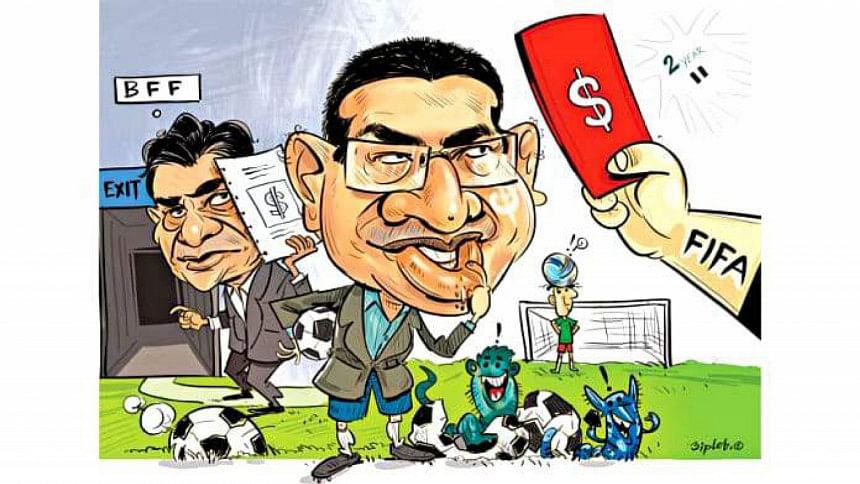Banning of the BFF General Secretary and FIFA’s legal procedure

On 14 April 2023, the apex controlling body of football – Fédération Internationale de Football Association (FIFA) – sanctioned Abu Nayeem Shohag, General Secretary of Bangladesh Football Federation (BFF) for violating several provisions of the FIFA Code of Ethics (FCE) (2023 edition). The detailed report has been published on FIFA's official website. The FIFA statute and the FIFA Code of Ethics are two important legal instruments that are applicable to all its member associations, players, club officials, licensed agents, and coaches.
According to article 52 of the FIFA statue, the disciplinary committee, ethics committee, and appeal committee are FIFA's judicial bodies. These judicial bodies are independent in nature and consist of one chairperson and two members. The disciplinary committee takes action against any accused football personnel, if the accused contravenes any disciplinary code of the FIFA. Moreover, the ethics committee takes necessary action, if the committee finds any financial irregularities or violation of the statue, regulations, decisions, or the FCE. The Ethics Committee has two divisions, namely the investigatory chamber and the adjudicatory chamber under article 5 of the FCE. Articles 6 and 7 have described the circumstances under which an official can be sanctioned and the types of sanctions that could be imposed.
FIFA's decision on Abu Nayeem Shohag has shown that the accused has misused FIFA forward funds and negligently allowed the use of forged or falsified documents in support of the transactions of the BFF paid with FIFA funds. Before the proceedings, the investigatory chamber has found that the accused has breached articles 13, 15, and 24 of the FCE. Article 13 (general duties) of the FCE states that persons bound by it shall fulfil and exercise their duties and responsibilities diligently, specially regarding the financial matters. Moreover, article 15 (duty of loyalty) describes the fiduciary relationship between the persons and the FIFA. The football personnel must comply with the article to fulfil their duty towards FIFA. However, article 24 prohibits football personnel from using forged or falsified documents. If any person contravenes any of the abovementioned provisions, the ethics committee shall impose a sanction with an appropriate fine of at least CHF 10,000 as well as impose a ban on taking part in any football-related activity for a minimum of two years.
In compliance with the requirements of the FCE, the investigatory chamber has scrutinised the allegations and found that there was a prima facie case against the accused. Afterwards, the investigatory chamber communicated with the accused several times to submit his written response in relation to the allegations levelled against him. Later, the committee submitted its final report to the adjudicatory chamber. The adjudicatory chamber acted on the basis of article 11 which clearly states that when more than one breach has been committed, the sanctions other than monetary sanctions, shall be based on the most serious breaches, and this should be increased proportionately. Considering article 11, the adjudicatory chamber has found that the most serious offense committed by Abu Nayeem Shohag is using forged documents and falsified documents to justify payments made by the BFF with FIFA funds, which is a violation of article 24 of the FCE.
Consequently, the accused has been issued with a two-year ban from taking part in all football-related activities and ordered to pay a fine of approximately BDT 12 lakh (CHF 10,000) for violating the FCE. In light of article 57(1) of the FIFA Statutes reads together with article 84 of the FCE, the accused now may appeal against the decision before the Court of Arbitration for Sport (CAS) within 21 days of the receipt of notification of the decision. As it is now clear, this judicial decision is a warning for all the football federation personnel to fulfil their respective duties in accordance with the law.
The Writer is Law Desk Intern, The Daily Star.

 For all latest news, follow The Daily Star's Google News channel.
For all latest news, follow The Daily Star's Google News channel. 



Comments